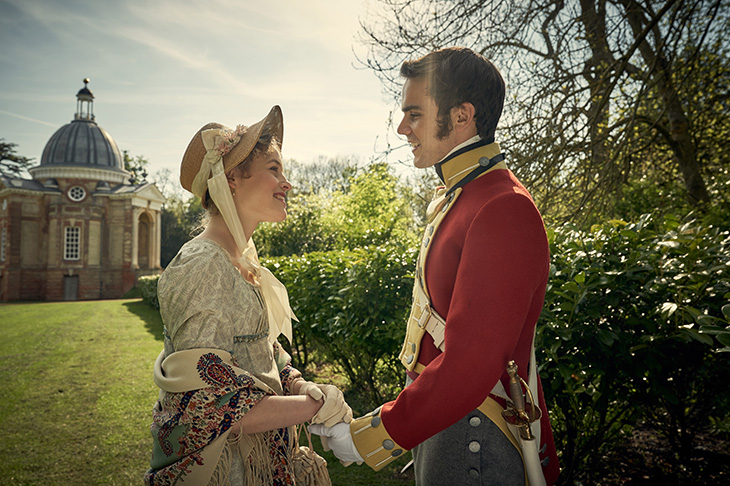The world may be going to hell in a handcart but some things remain reassuringly unchanged: Julian Fellowes period dramas about feisty dowager duchesses, social climbing and snobbery, say. I like and admire Fellowes so I don’t want him to take this the wrong way. But when I say that his new series Belgravia (ITV) borrows from the same template he employed so successfully with Downton Abbey, and before that Gosford Park, and also in that series set on the Titanic that didn’t do quite so well, I’m not trying to suggest he’s a one-trick pony. More that he’s a canny chap who understands his market, has found the perfect formula and is damned if he’s not going to milk it for all it’s worth.
So, for example, in Belgravia — cunningly differentiated from Downton by the fact that it’s set in 1840s London rather than early 20th-century Berkshire — we meet an aristocratic battleaxe who entertainingly speaks her mind, suffers no fools and rails against the offensively newfangled ways of the times. Only this time, she’s played not by Dame Maggie Smith but by Dame Harriet Walter (whom perhaps either Fellowes or the casting director saw stealing the show as Logan Roy’s monstrous English first wife in Succession). And instead of electric lighting, the innovation that has invited her outrage is afternoon tea: ‘What is this newfangled tea?’
Both series also open with a big historical event — one so famous that even the all-important American audience is likely to be vaguely familiar with it. With Downton, it was the Titanic. With Belgravia, it’s the Duchess of Richmond’s ball on the eve of Waterloo. Both events have the added advantage of enabling key characters to die suddenly; or, perhaps, to appear to have died and then emerge back from the dead at unexpected moments.









Comments
Join the debate for just £1 a month
Be part of the conversation with other Spectator readers by getting your first three months for £3.
UNLOCK ACCESS Just £1 a monthAlready a subscriber? Log in